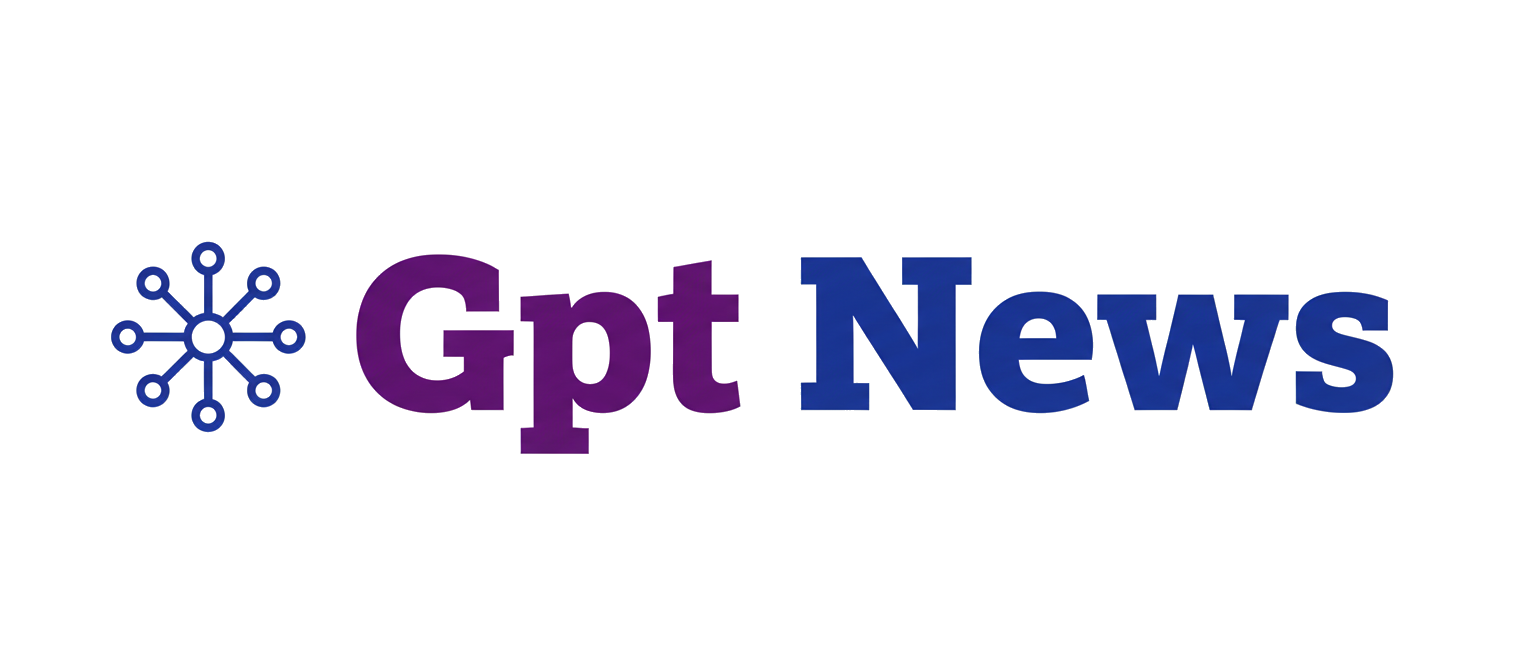
Decoding the Markets: The Transformative Impact of GPT on Financial News and Analysis
In the relentless, high-stakes world of finance, information is the ultimate currency. The speed at which market-moving data is processed and acted upon can be the difference between monumental gains and catastrophic losses. For decades, this process has been a human-centric endeavor, augmented by algorithmic trading. Today, we stand at the precipice of a new paradigm shift, driven by Generative Pre-trained Transformers (GPT). These advanced AI models are no longer just a topic of tech blogs; they are actively reshaping the creation, consumption, and strategic analysis of financial news. From automating earnings reports to uncovering nuanced market sentiment, GPT technology is becoming an indispensable tool for investors, analysts, and financial institutions. This article delves into the profound impact of GPT on the financial news landscape, exploring its applications, the technical underpinnings, and the critical considerations for its responsible deployment.
The New Engine of Financial Intelligence: GPT’s Role in Content and Analysis
The integration of GPT models into the financial sector represents a fundamental evolution from simple data processing to sophisticated information synthesis. The latest GPT-4 News and even earlier GPT-3.5 News have demonstrated capabilities that go far beyond basic text generation, enabling a new class of applications that augment human expertise and accelerate decision-making.
Automated News Generation and Summarization
One of the most immediate applications of GPT in finance is the automated generation of news content. Models can be fed structured data—such as quarterly earnings reports, SEC filings, and real-time market data—and instantly produce coherent, human-readable news articles. For instance, a financial news outlet can use a GPT-powered system to publish an initial summary of a company’s earnings report seconds after it’s released, giving its readers a critical time advantage. This is a core topic in GPT in Content Creation News. Beyond generation, these models excel at summarization. An analyst faced with a 200-page research report can use a GPT tool to get a concise, actionable summary in minutes, highlighting key findings, risks, and outlooks. This application is a frequent highlight in ChatGPT News and discussions around enterprise AI.
Enhancing Personalization and Accessibility
The firehose of financial information is overwhelming for even the most seasoned professional. GPT enables hyper-personalization at scale. Financial platforms can leverage GPT Custom Models News to create personalized news feeds for users, filtering and summarizing articles based on their specific portfolio holdings, risk tolerance, and stated interests. Furthermore, the impressive advancements in GPT Multilingual News and GPT Cross-Lingual News are breaking down language barriers. A U.S.-based investor can now receive near-instantaneous, high-quality translations and summaries of financial news published in Japanese or German, opening up global markets with unprecedented ease. This is a key feature of many emerging GPT Platforms News.
The Architecture Behind the Magic
The power of these models stems from their underlying transformer architecture. The latest GPT Architecture News reveals increasingly complex and scaled-up designs capable of understanding intricate relationships in data. This progress is fueled by new GPT Training Techniques News and the curation of massive, high-quality GPT Datasets News. The process of converting text into a format the model understands, a topic covered in GPT Tokenization News, is also a critical and evolving area of GPT Research News. The sheer scale of these models, a central theme in GPT Scaling News, is what enables their remarkable emergent abilities in financial reasoning and language.
Beyond the Headlines: GPT for Advanced Financial Analysis

While content generation is powerful, the true revolution lies in using GPT for deep analytical tasks that were previously the exclusive domain of human experts. This is where the technology provides a genuine competitive edge, turning qualitative information into quantitative signals.
Sentiment Analysis at Unprecedented Scale
Traditional sentiment analysis often relies on keyword dictionaries and can easily be fooled by sarcasm, nuance, or complex financial jargon. GPT models, however, understand context. They can analyze thousands of news articles, social media posts, and forum discussions to gauge the subtle shifts in market sentiment towards a stock or sector. For example, a GPT model can differentiate between a genuinely negative analyst report and a report that is cautiously optimistic but highlights significant risks. The accuracy of these models is constantly being evaluated, with GPT Benchmark News providing insights into their performance on specific financial tasks. This advanced sentiment analysis is a critical input for quantitative trading models and risk management systems.
Unstructured Data Extraction and Interpretation
Financial due diligence involves wading through mountains of unstructured data, from lengthy 10-K filings to complex legal agreements. The latest GPT Applications News shows how these models can act as tireless junior analysts. A private equity firm could use a GPT-powered tool, likely accessed via GPT APIs News, to scan a target company’s legal documents and flag all clauses related to “change of control.” Similarly, the growing field of GPT Vision News allows models to interpret charts and graphs within reports, extracting data points that aren’t in text form. This capability is not just confined to finance; it’s also a hot topic in GPT in Legal Tech News, showcasing the technology’s versatility.
Building Predictive Models with GPT Agents
Looking ahead, the most exciting developments are in the realm of autonomous agents. The ongoing buzz in GPT Agents News points to a future where AI systems can do more than just analyze; they can act. A financial agent could be tasked to continuously monitor all news related to the semiconductor industry, use GPT Code Models News to run a new valuation model when a major competitor announces a product, and then alert a portfolio manager with a summarized report and a recommended action. This proactive intelligence gathering and analysis represents the next frontier in AI-driven finance.
Implementation and Integration: Bringing GPT into the Financial Workflow
Adopting GPT technology is not a simple plug-and-play exercise. It requires careful planning, technical expertise, and a deep understanding of both the potential and the pitfalls. The conversation around GPT Deployment News is rich with best practices and cautionary tales.
Best Practices for Deployment
Financial institutions face a critical choice: use third-party GPT Integrations News via public APIs or invest in building proprietary systems. For many, a hybrid approach works best. Using a public API for general tasks like summarization can be cost-effective, but for handling sensitive, proprietary data, a private, custom-built model is essential. This is where GPT Privacy News becomes a paramount concern. Ensuring data encryption, secure model hosting, and compliance with financial regulations is non-negotiable. The latest GPT Safety News emphasizes the need for robust guardrails to prevent misuse and ensure reliable outputs.

Fine-Tuning for Financial Nuance
A general-purpose model like ChatGPT is impressive, but it lacks specialized domain knowledge. This is where fine-tuning comes in. The focus of GPT Fine-Tuning News is on adapting a large base model to a specific task by training it further on a smaller, curated dataset. A hedge fund, for example, could fine-tune a model on its entire archive of internal research notes and trade journals. The resulting model would “speak the language” of the fund, understand its unique analytical framework, and provide far more relevant and accurate insights than a generic model. This is a key area of development for firms seeking a unique analytical edge.
Overcoming Common Pitfalls: Hallucinations and Bias
The biggest risk in using GPT in finance is its potential to “hallucinate”—to generate plausible but entirely fabricated information. In a domain where accuracy is everything, a single hallucinated statistic could lead to a disastrous financial decision. This is a central topic in GPT Ethics News. Mitigation strategies include building human-in-the-loop verification systems and designing prompts that force the model to cite its sources. Another critical challenge, highlighted in GPT Bias & Fairness News, is that models can inherit and amplify biases present in their training data. If a model is trained on historical news that underrepresents certain markets or viewpoints, its outputs will reflect that bias. As a result, discussions around GPT Regulation News are intensifying, with regulators keen to establish standards for AI use in financial services.
The Competitive Landscape and Future Trajectory
The rapid evolution of GPT technology is fostering a vibrant and competitive ecosystem. While OpenAI has been a dominant force, the landscape is diversifying, and the future promises even more powerful and efficient models.

The Ecosystem and Key Players
The market is not a monolith. The latest GPT Competitors News features powerful alternatives from companies like Google, Anthropic, and a burgeoning community focused on GPT Open Source News. This competition is healthy, driving innovation and providing more options for businesses. The broader GPT Ecosystem News is filled with startups and established fintech companies building specialized GPT Tools News on top of these foundational models, creating everything from AI-powered compliance checkers to sophisticated chatbot assistants for wealth management clients, a key topic in GPT Assistants News and GPT Chatbots News.
What’s Next? Multimodality, Efficiency, and the Edge
The anticipation for what comes next, including potential GPT-5 News, centers on two key trends: multimodality and efficiency. Future models will be truly multimodal, capable of processing and synthesizing information from text, images, audio, and video simultaneously. A topic of much discussion in GPT Multimodal News, this could allow an AI to analyze a CEO’s tone of voice during an earnings call alongside the financial transcript to detect subtle signs of confidence or distress.
Simultaneously, there is a massive push for efficiency. The high computational cost of running these models is a barrier to real-time applications. Research in GPT Efficiency News, including techniques like GPT Compression News, GPT Quantization News, and GPT Distillation News, aims to create smaller, faster models without sacrificing performance. This is crucial for low-latency trading applications where every millisecond counts. The progress in GPT Latency & Throughput News, driven by specialized GPT Hardware News and advanced GPT Inference Engines News, is paving the way for deploying these models closer to where decisions are made, a trend known as GPT Edge News. This optimization is not just for finance but is also a key topic in GPT Applications in IoT News.
Conclusion: Navigating the New Frontier of Financial Information
The integration of GPT models into the world of financial news is not a fleeting trend; it is a fundamental technological shift that is redefining the flow of market intelligence. From automating content creation to uncovering deep analytical insights and powering predictive agents, GPT is providing tools that offer a significant competitive advantage. However, this power comes with profound responsibilities. Navigating the challenges of accuracy, bias, privacy, and regulation is just as critical as harnessing the technology’s capabilities. The firms that will thrive in this new era are those that embrace GPT as a powerful co-pilot for their human experts, implementing it thoughtfully, ethically, and strategically. The ongoing evolution of GPT Trends News and the broader GPT Future News suggests that we are only at the beginning of this transformation, and the future of finance will be written by those who best understand how to decode the markets with artificial intelligence.



